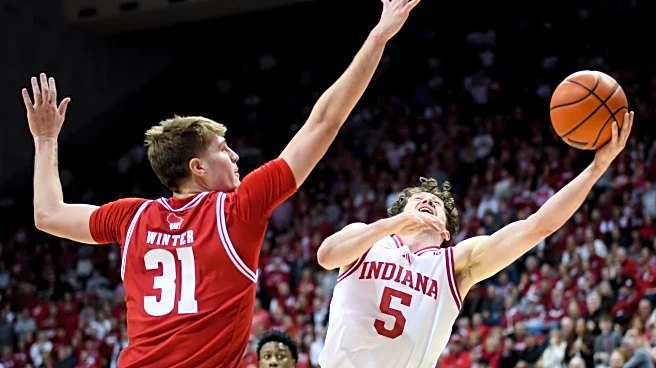What is the story about?
What's Happening?
The UK art market is experiencing intensified scrutiny from HM Revenue & Customs (HMRC) as part of a broader crackdown on money laundering. DYS44 Art Gallery Limited, based in London, has been fined £158,679 for failing to comply with procedural requirements, including risk assessments and due diligence. The gallery's director, Cesare Lampronti, has committed to rectifying these issues to ensure compliance with HMRC regulations. This enforcement action is part of a trend where HMRC is moving beyond penalizing registration failures to examining operational compliance more closely. The latest figures show an increase in penalties, with over 80 fines issued in a recent six-month period, compared to 61 fines over the previous 20 months.
Why It's Important?
The escalation in fines and enforcement actions by HMRC highlights the growing importance of compliance in the art market, which is often seen as vulnerable to money laundering due to high-value transactions. This crackdown could lead to increased operational costs for art dealers as they implement more robust compliance measures. The art market participants must now ensure ongoing monitoring and customer due diligence to avoid penalties. The increased scrutiny may deter illicit activities but also poses challenges for legitimate businesses in terms of administrative burdens and costs.
What's Next?
Art market participants are expected to enhance their compliance systems to meet HMRC's stringent requirements. This includes regular customer due diligence checks and timely reporting of any changes in business circumstances. The Society of London Art Dealers has noted the sensitivity around technical breaches and the administrative burden they impose. As HMRC continues to enforce these regulations, art dealers may need to invest in compliance infrastructure and training to mitigate risks and avoid future fines.
Beyond the Headlines
The crackdown on money laundering in the art market may have broader implications for the industry, including potential shifts in how art transactions are conducted. The increased regulatory focus could lead to a more transparent market, potentially affecting art valuations and market dynamics. Additionally, the emphasis on compliance may influence international art trade practices, as UK regulations could set a precedent for other countries.
















